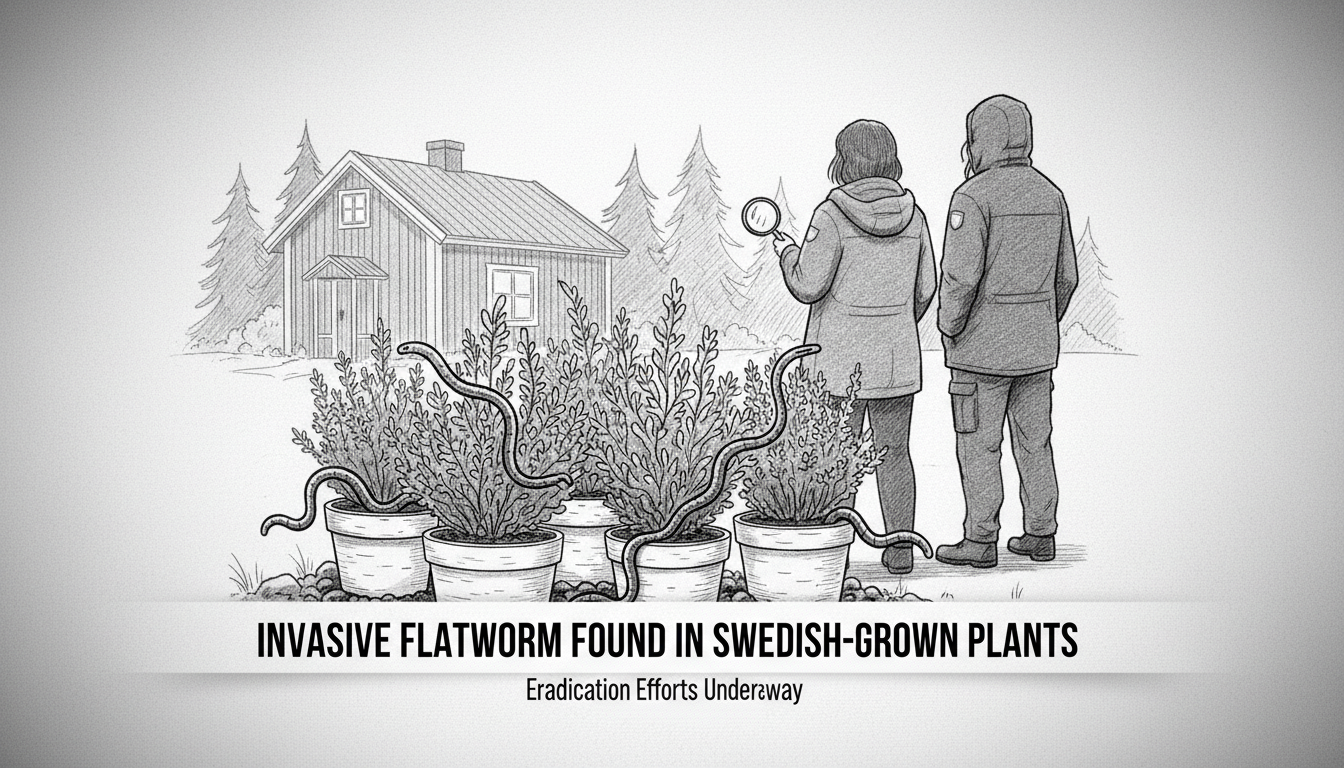For the first time, the invasive flatworm has appeared in Swedish-produced plants during summer and autumn. Authorities report only a few findings so far. The worms likely spread from imported plants placed nearby.
One year has passed since the initial discovery of this invasive species in Skåne. Since that first detection, the spread has remained very limited according to regional officials.
Cajza Eriksson, a nature conservation officer, addressed the situation directly. "There is reason for concern, but the battle is by no means lost. So far the spread remains very limited. Since the long-term consequences could be substantial, total eradication must be our goal," Eriksson stated in the official release.
This discovery marks a concerning development for Sweden's agricultural and horticultural sectors. Invasive species can disrupt local ecosystems and damage crops. The flatworm's appearance in domestically grown plants suggests existing containment measures might need strengthening.
Sweden maintains strict biosecurity protocols for imported plants. The country's environmental protection laws prioritize preventing ecological damage from non-native species. This incident tests those safeguards.
Gardeners and farmers should inspect plants carefully. Early detection remains crucial for controlling invasive species. The limited spread so far indicates current response measures show some effectiveness.
International readers should understand Sweden's unique environmental context. The country contains diverse ecosystems from northern forests to southern agricultural lands. Protecting this natural heritage drives Sweden's strong environmental policies.
What happens next? Authorities will likely increase monitoring of plant production facilities. They may implement stricter separation between imported and domestic plants. The coming months will reveal whether current containment efforts succeed.
Why does this matter beyond Sweden? Invasive species represent a global environmental challenge. This case demonstrates how even countries with strong regulations face ecological threats. The situation shows the interconnected nature of modern plant trade.
The flatworm discovery serves as a reminder that biological threats don't respect national borders. It highlights the ongoing challenge of balancing international trade with environmental protection.

